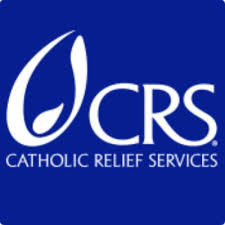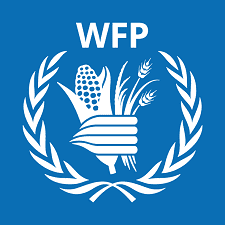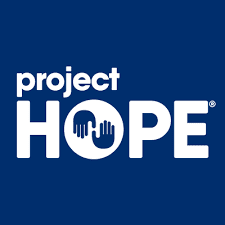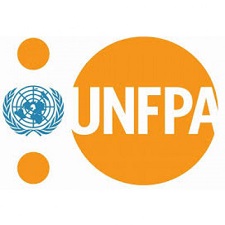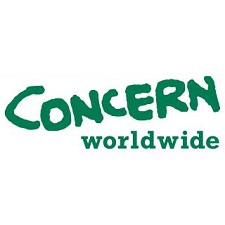🇸🇱 Job Vacancies @ World Health Organization (WHO) – 2 Positions
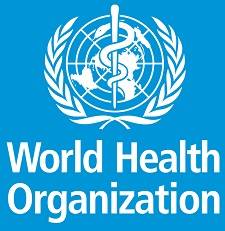 World Health Organization (WHO) is recruiting to fill the followingpositions:
World Health Organization (WHO) is recruiting to fill the followingpositions:
1.) Epidemiologist
2.) Pharmacy Officer
See job details and how to apply below.
1.) Epidemiologist
Epidemiologist - (2401343)
Grade: P3
Contractual Arrangement: Temporary appointment under Staff Rule 420.4
Contract Duration (Years, Months, Days): 1 YEAR
Job Posting
: Feb 13, 2024, 5:21:45 PM
Closing Date
: Mar 5, 2024, 11:59:00 PM
Primary Location
: Sierra Leone-Freetown
Organization
: AF_SLE Sierra Leone
Schedule
: Full-time
IMPORTANT NOTICE: Please note that the deadline for receipt of applications indicated above reflects your personal device's system settings.
OBJECTIVES OF THE PROGRAMME
The objective is to enhance the ability of all levels of the health system to detect and respond to diseases and hazards that cause high levels of death, illness and disability by providing timely and reliable information for taking action. This will subsequently lead to the reduction of the health consequences of serious public health emergenciesAs lead agency in the area of health, WHO works closely with the Ministry of Health and Sanitation, other UN agencies and partners to improve the health outcomes for the people of Sierra Leone. The country has a number of pressing health challenges, including high rates of maternal and child mortality, a severe communicable disease burden, and a rising incidence of non-communicable diseases.The Ebola virus disease outbreak in 2014/15 presented a severe shock for the health system of Sierra Leone. A 24-month recovery phase is coming to an end in 2017 and the health sector is emerging from the emergency to a focus on delivering quality health services to the people. WHO is supporting this transition from Ebola to Health through work in four broad areas of work: (1) reproductive, maternal, newborn, child and adolescent health; (2) public health security and emergencies; (3) communicable and non-communicable diseases; and (4) health systems strengthening.
DESCRIPTION OF DUTIES
i. Provide technical advice to the Ministry of Health and Sanitation (MOHS) and partners, in the development and implementation of strategies and programmes related to the epidemiological needs for public health surveillance and response, within the context of the Integrated Disease Surveillance and Response (IDSR).ii. Provide technical support to MOHS in cooperation with technical partners to develop surveillance guidelines, protocols, tools and standard operating procedures (SOP) for detection, verification and response to public health events.iii. Support MOHS to develop appropriate training plans for building the core surveillance, alert and response national capacities in accordance with the requirement for IHR 2005; provide trainings for MOHS staff at national and Sub national levels including Points of entry/cross border.iv. Conduct real-time analysis of outbreak intelligence data (multiple sources) on infectious diseases with other team members for epidemic forecasting and detection, use of data for monitoring of trends and Triggers (Alert and Action thresholds) and guide MOHS on data quality improvement as well as methodologies for performing Data Quality Audit (DQA).v. Provide technical support during field investigation, management of public health events as well as strengthening coordination through Public Health Management Committee (PHEMC).vi. Provide technical support to MOHS to carry out vulnerability assessment, risk mapping and development of preparedness / contingency plan.vii. Support strengthening/implementation of e-IDSR and Community Based Surveillance (CBS) for priority diseases, conditions and events.viii. Facilitate the national quarterly surveillance review meeting including the tracking of performance indicators related to the implementation of IDSR and IHR 2005ix. Support MOHS in the production of information products and reports including weekly bulletin, situation reports, and outbreak investigation reports, among others.x. Any other duty assign to by the Head of WHO, HSE Cluster Coordinator and the IDSR Technical Team Lead
REQUIRED QUALIFICATIONS
Education
Essential: First university degree in Medicine, Epidemiology, Public Health or Community Health with substantial training in Epidemiology.
Desirable: An advanced university degree in Epidemiology, Public Health or Community Health
Experience
Essential: At least five years related experience at the national and international level in implementation of public health surveillance. Proven experience in implementation of Integrated Disease Surveillance and Response (IDSR) and International Health Regulations (2005) is a requirement.
Desirable: Experience in the areas of outbreak investigation and response for emerging and re-emerging infectious diseases in developing countries. Previous experience of working with UN Agencies and Ministry of Health (MOH) is an added advantage.
Skills
-Sound knowledge and skills in database management and statistical analysis, secondary data review, survey designing and implementation, monitoring and evaluation and public health information management.-Proven ability to multi-task across various planning and implementation processes within a highly demanding environment-Demonstrated knowledge, competency and professional skills on the public health aspects of infectious disease control, epidemic and pandemic preparedness and response with particular attention to application of an all hazard approach in the context of the International Health Regulations and the use of descriptive epidemiology and principles of public health in communicable disease surveillance and response.
WHO Competencies
Teamwork
Respecting and promoting individual and cultural differences
Communication
Ensuring the effective use of resources
Producing results
Use of Language Skills
Essential: Expert knowledge of English.
Desirable:
REMUNERATION
WHO salaries for staff in the Professional category are calculated in US dollars. The remuneration for the above position comprises an annual base salary starting at USD 64,121 (subject to mandatory deductions for pension contributions and health insurance, as applicable), a variable post adjustment, which reflects the cost of living in a particular duty station, and currently amounts to USD 2853 per month for the duty station indicated above. Other benefits include 30 days of annual leave, allowances for dependent family members, home leave, and an education grant for dependent children.
ADDITIONAL INFORMATION
- This vacancy notice may be used to fill other similar positions at the same grade level
- Only candidates under serious consideration will be contacted.
- A written test and/or an asynchronous video assessment may be used as a form of screening.
- In the event that your candidature is retained for an interview, you will be required to provide, in advance, a scanned copy of the degree(s)/diploma(s)/certificate(s) required for this position. WHO only considers higher educational qualifications obtained from an institution accredited/recognized in the World Higher Education Database (WHED), a list updated by the International Association of Universities (IAU)/United Nations Educational, Scientific and Cultural Organization (UNESCO). The list can be accessed through the link: http://www.whed.net/. Some professional certificates may not appear in the WHED and will require individual review.
- According to article 101, paragraph 3, of the Charter of the United Nations, the paramount consideration in the employment of the staff is the necessity of securing the highest standards of efficiency, competence, and integrity. Due regard will be paid to the importance of recruiting the staff on as wide a geographical basis as possible.
- Any appointment/extension of appointment is subject to WHO Staff Regulations, Staff Rules and Manual.
- Staff members in other duty stations are encouraged to apply.
- The WHO is committed to creating a diverse and inclusive environment of mutual respect. The WHO recruits and employs staff regardless of disability status, sex, gender identity, sexual orientation, language, race, marital status, religious, cultural, ethnic and socio-economic backgrounds, or any other personal characteristics.
- The WHO is committed to achieving gender parity and geographical diversity in its staff. Women, persons with disabilities, and nationals of unrepresented and underrepresented Member States (
https://www.who.int/careers/diversity-equity-and-inclusion
- ) are strongly encouraged to apply.
- Persons with disabilities can request reasonable accommodations to enable participation in the recruitment process. Requests for reasonable accommodation should be sent through an email to
reasonableaccommodation@who.int
- An impeccable record for integrity and professional ethical standards is essential. WHO prides itself on a workforce that adheres to the highest ethical and professional standards and that is committed to put the WHO Values Charter into practice.
- WHO has zero tolerance towards sexual exploitation and abuse (SEA), sexual harassment and other types of abusive conduct (i.e., discrimination, abuse of authority and harassment). All members of the WHO workforce have a role to play in promoting a safe and respectful workplace and should report to WHO any actual or suspected cases of SEA, sexual harassment and other types of abusive conduct. To ensure that individuals with a substantiated history of SEA, sexual harassment or other types of abusive conduct are not hired by the Organization, WHO will conduct a background verification of final candidates.
- Mobility is a condition of international professional employment with WHO and an underlying premise of the international civil service. Candidates appointed to an international post with WHO are subject to mobility and may be assigned to any activity or duty station of the Organization throughout the world.
- WHO also offers wide range of benefits to staff, including parental leave and attractive flexible work arrangements to help promote a healthy work-life balance and to allow all staff members to express and develop their talents fully.
- The statutory retirement age for staff appointments is 65 years. For external applicants, only those who are expected to complete the term of appointment will normally be considered.
- Please note that WHO's contracts are conditional on members of the workforce confirming that they are vaccinated as required by WHO before undertaking a WHO assignment, except where a medical condition does not allow such vaccination, as certified by the WHO Staff Health and Wellbeing Services (SHW). The successful candidate will be asked to provide relevant evidence related to this condition. A copy of the updated vaccination card must be shared with WHO medical service in the medical clearance process. Please note that certain countries require proof of specific vaccinations for entry or exit. For example, official proof /certification of yellow fever vaccination is required to enter many countries. Country-specific vaccine recommendations can be found on the WHO international travel and Staff Health and Wellbeing website. For vaccination-related queries please directly contact SHW directly at shws@who.int.
- WHO has a smoke-free environment and does not recruit smokers or users of any form of tobacco.
- For information on WHO's operations please visit: http://www.who.int.
- *For WHO General Service staff who do not meet the minimum educational qualifications, please see e-Manual III.4.1, para 220.
- In case the website does not display properly, please retry by: (i) checking that you have the latest version of the browser installed (Chrome, Edge or Firefox); (ii) clearing your browser history and opening the site in a new browser (not a new tab within the same browser); or (iii) retry accessing the website using Mozilla Firefox browser or using another device. Click this link for detailed guidance on completing job applications: Instructions for candidates
2.) Pharmacy Officer
Pharmacy Officer - (2400997)
Grade: No grade
Contractual Arrangement: Special Services Agreement (SSA)
Contract Duration (Years, Months, Days): Six (6) Months
Job Posting
: Feb 14, 2024, 12:27:57 PM
Closing Date
: Feb 28, 2024, 11:59:00 PM
Primary Location
: Sierra Leone-Freetown
Organization
: AF_SLE Sierra Leone
Schedule
: Full-time
IMPORTANT NOTICE: Please note that the deadline for receipt of applications indicated above reflects your personal device's system settings.
.
Background
The World Health Organization and the Global Fund to Fight AIDS, Tuberculosis and Malaria collaborate to implement strategic initiatives to accelerate the end of AIDS, tuberculosis and malaria as epidemics and strengthen systems for health. The partnership aims to address some persistent challenges that impede progress against the three diseases and protect hard-won gains from new pandemics like COVID-19. WHO and the Global Fund have a long and successful partnership working together to scale up HIV, TB and malaria interventions and strengthen health systems in many countries. Through focused efforts and catalytic investments, this collaboration has contributed to significantly reduce the disease burdens of HIV, TB and malaria worldwide, saving millions of lives since 2002.
“The COVID-19 pandemic, more than ever, reinforces the need to strengthen partnership to achieve shared goals of ending the epidemics. “The partnership supports countries to develop more effective responses to the HIV, tuberculosis and malaria epidemics and build the resilient health systems they need to reach the most vulnerable.”
“Together, WHO and the Global Fund have proven to be a powerful force that builds on strong in-country support and regional presence, technical leadership, and financial resources to strengthen systems for health and accelerate the end of AIDS, TB and malaria as epidemics. “This partnership helps overcome the multiple challenges caused by the COVID-19 pandemic, safeguard and expand HIV, TB and malaria programs and strengthen the system.”
1.1 World Health Organization and the Global Fund support to Sierra Leone
Sierra Leone receives support from both the World Health Organization and the Global Fund. The relationship between Sierra Leone and Global Fund came into existence in May 2005, whilst that with WHO started on 9 May 1956 when it was admitted as Associate Member and became an official member of WHO at its Independence on 27 April 1961 and currently a Member State of the WHO African Region.
The Global Fund currently classifies Sierra Leone as a CORE country. Based on the Global Fund Board’s decision in November 2022 on the funding available for the 2023-2025 allocation period, Sierra Leone has been allocated US$126,444,674 for HIV, tuberculosis (TB), malaria and building resilient and sustainable systems for health (RSSH). This process involves country dialogue between all actors involved in the response and selecting a principal recipient to implement the grant. In this context, the RSSH grant from the Global Fund was integrated into the disease components (HIV/AIDS, TB, and Malaria for the period July 2021-June 2024. The RSSH grant is implemented by the Principal Recipients –Ministry of Health.
To mitigate the negative impact of the COVID-19 pandemic on programs to fight AIDS, tuberculosis (TB) and malaria and initiate urgent improvements in formal and community health systems, Sierra Leone has benefitted from Global Fund’s COVID-19 Response Mechanism (C19RM) since April 2021. As the pandemic evolves and countries transition from an emergency response, the C19RM funding continues supporting resilient and sustainable systems for health (RSSH) and pandemic preparedness with an extension to 30 June 2023 and through C19RM Portfolio Optimization for implementation through to 31 December 2025.
In preparing and submitting Funding Requests and Grant Makings, Sierra Leone bas been benefitting from WHO’s technical assistance the latest one being under WHO’s “South-South Learning and Strategic support to countries”, where the country, among 10 other countries received support to develop a resilient and sustainable systems for health (RSSH) component in a HIV, TB, or malaria funding request to the Global Fund.
To increase and to sustain the implementation of activities under the NFM3/GC6, the Ministry of Health as the main PR has invited WHO and other agencies in Sierra Leone with the comparative advantage to support the country to main the tempo for implementation.
- Justification
Considering the increasing need to fight HIV/TB/Malaria and strengthen the health system in general in Sierra Leone, and in accordance with the Global Fund procedures, Sierra Leone has identified the need for extra support to be able to implement the activities agreed between the Principal Recipients through CCM and the Global Fund. WHO, being associated with the Global Fund, the CCM and the Principal Recipient MOH, is seen as a reliable partner to the Ministry on its programmes with the Global Fund through the provision of technical assistance in various forms and thereby being in the known of the challenges confronting the implementation of the Global Fund’s funded initiatives and activities.
The Ministry of Health is seeking technical assistance from WHO to support the implementation of some of its Global fund activities under GC6 and C19RM till June 2024. With prior discussions with the parties involved and given the short time of the grant, there is an understanding for the recruitment of two RSSH Experts as consultants (One international and one National) to support the Ministry in the implementation of the Grant Cycle 6 with focus on RSSH component of the agreements.
- Scope of Work
Under the supervision of the Coordinator of Health Systems and working closely with Health teams, the Resilient and Sustainable Systems for Health (RSSH) ATM program Manager, the National Consultant shall work to facilitate and support the PR with issues related to the implementation of a component of their national ATM and general systems strengthening programmes. The programmes and the strengthening of systems present highly complex technical, epidemiological, and political contexts for implementing ATM control and elimination embedded in an equally complex health system.
The Consultant(s) is expected to have a clear understanding of WHO policies and guidelines on the specific intervention area and an in-depth knowledge of the technical aspects of ATM prevention and control in endemic countries and the relevant health systems components required for success. The assignment also requires highly developed negotiation skills and a proven track record in achieving consensus across multiple stakeholders. The consultant must have vast experience in pharmaceuticals and procurement of health products based on local and international standards. The consultant(s) will be expected to be onsite.
- Duties and responsibilities
The objective of the assignment:
The Consultant(s) must have expertise in at least one of the intervention areas listed below to provide the targeted support required. In addition, experience in contextualizing these health system pillars within or complementing the ATM programmes is needed.
- Health product management, supply chain and systems strengthening.
- Laboratory systems
- Health sector governance and planning
- Integrated service delivery and quality of care (ex. RMNCAH: malaria prevention in pregnancy – IPTp and ITNs, diagnosis and treatment)
- Planning, direction, and governance of the health sector
- Health product management systems
- Strengthening laboratory systems
- Oxygen therapy and respiratory care systems
- Community systems and responses
- Other cross-cutting considerations: private sector involvement
The Consultant will be expected to carry out the following tasks to meet the objectives mentioned above:
- Provide strategic and technical support for the development of national policies, guidelines and plans for TB, HIV and Malaria prevention and care; laboratory strengthening,
- Provide strategic and technical support on assessing the epidemiological and programmatic situation, designing, and implementing interventions, and mobilizing resources for effective implementation of the priority activities, from the Global Fund for AIDS, Tuberculosis Malaria and RSSH.
- Strengthen community systems and community-led programs and help integrate them into health systems.
- Strengthen the supply chain to ensure that medicines, laboratory services and health products are available when and where needed.
- Facilitate the quantification, technical specification, and procurement process of Equipment for Regulatory/Quality Assurance
- Strengthen the creation and use of health data at all levels so that Sierra Leone and communities can make decisions based on the latest evidence.
- Provide technical support to monitor and facilitate the implementation of the GC6 f RSSH and ATM activities by conducting programme reviews and technical missions, facilitating capacity-building activities, collecting, and analyzing programmatic and surveillance data, designing and supporting programmatic and operational research, as well as preparing documents for various purposes including policy recommendations, technical communications, advocacy materials, donor proposals and reports.
- Strengthen collaboration with international technical and funding partners, including technical institutions, financial institutions, and bilateral donors, and facilitate the timely Mobilization of more multisectoral opportunities to improve services' scope, quality, and affordability.
- Strengthen partnerships between different sectors and harmonies and integrate GC6 disease programmes with overall health systems, strengthening strategies and interventions so that programs and services are sustainable and can reach more people.
- Deliverables
Under the coordination of WHO, MOH and CCM, the consultant(s) will have to carry out the main deliverables as follows:
To be determined based on the specific assignment up to June 2024 with possible examples:
- Provide a clear plan on GC6 and C19 activities, including RSSH components of a Global Fund funding that can be implemented within the required period of June 2024
- Give an updated operational plan to support the Pharmacy Council in implementing its key priority activities with GF funding.
- Updated operational plan on how to support the implementation of prioritised activities under GC 6
- Final report to WHO/MOH/CCM analysing support provided, including recommendations for improving future support to Sierra Leone.
- The Consultant shall prepare monthly activities report outlining procurements executed and status.
- At the end of each month, the Consultant shall produce a report outlining the implementation status of GC6/C19 Procurement activities.
- Qualifications, experience, skills, and languages
(1) Education
Required:
- Medical Degree from a recognized university and or with a postgraduate degree or equivalent in public health/pharmacy and/or social sciences or any other relevant field.
Desirable:
- A senior expert with extensive experience in public health, pharmacy, medicine, statistics and health systems.
(2) Work experience
Essential
- Minimum of 5 years’ experience working on multilateral grants, including experience with the Global Fund for RSSH, TB, HIV, and malaria control at subnational, national, and international levels in developing countries
- Minimum five years of experience in public health, pharmacy, medicine, statistics, or health systems at the national and international levels.
- Experience in processing procurement in line with national and international SOPs.
- Experience in the practice of procurement of goods and works and the acquisition of services under donor funding conditions. +
- Practical experience in programme reviews and strategic plan development
- Experience drafting technical briefs.
- Experience in proposal and report writing.
- Ability to communicate effectively (written and oral) in English with a working knowledge of the French language,
- Competence with standard MS Office software (Word, Excel, PowerPoint)
Desirable:
- At least five (5) years of international experience working with UN and international NGOs, bilateral or multilateral agencies
- Competencies
- Functional competencies:
- Good knowledge and experience in Health systems strengthening in resource-challenged environments.
- Have international experience in writing Funding Request and Grant Making, particularly on the RSSH component.
- Good understanding of the theme
- Good knowledge of hospital environments
- Analytical and synthesis skills and communication skills, particularly with various actors
- Have a good knowledge of fieldwork.
- Justify at least 10 years of experience in the field.
Skills/Knowledge
- An extensive background in WHO mandate in public health, policies and strategies and supporting Member States in implementing health strategies.
- He or she will be well conversant with WHO norms, standards and guidelines in medical product quality, safety, and efficacy.
- The consultant shall be conversant with the Microsoft Office software, programs or applications and must have the equipment, such as a computer, mobile phone, internet connectivity and other technical means needed for the successful delivery of this consultancy.
- Writing and communication skills, and particular expertise in preparing documents and writing for WHO, with evidence of persuasive writing skills.
- Ability to work in a multicultural environment.
- Excellent analytical skills and ability to effectively collect, analyze, organize, distil, and present information.
- Good understanding of the global health challenges and responses for low resource settings
- Good understanding of other global multilateral funding platforms for health and ATM programmes
Language level required.
- Expert knowledge of English (spoken and written)
Technical Supervision
- Selassi Amah D’ALMEIDA, Coordinator Health Systems, dalmeidas@who.int
